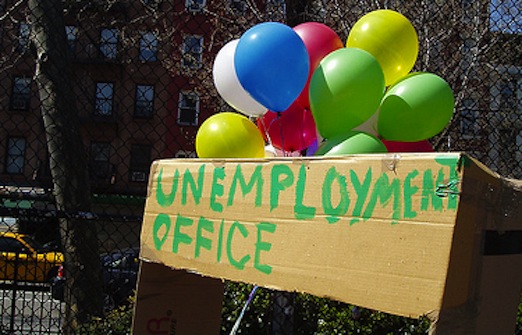Discrimination Against Unemployed Workers
 The Department of Labor reported last Friday that the unemployment rate is down to 8.8% from 8.9% the prior month. While this is good news, the Workplace Prof Blog explains that there are still a lot of long-term unemployed.
The Department of Labor reported last Friday that the unemployment rate is down to 8.8% from 8.9% the prior month. While this is good news, the Workplace Prof Blog explains that there are still a lot of long-term unemployed.
To be unemployed is a very hard and demoralizing state to go through. But it is even harder due to the fact that when looking for work you face discrimination because you are unemployed.
Economists have shown that the longer you remain unemployed, the less chances you have of finding work. “Economists have tended to chalk up long-term unemployment to the probability of skill decay or discouragement, or employers’ perceptions of skill decay,” said Margaret Shih, a co-author on the study. “But we’re finding that when there’s no evidence that skills have deteriorated, out-of-work job applicants are still at a disadvantage. The stigma may help explain why the unemployed may have systematically lower chances of reconnecting to work.”
Researchers from UCLA and the State University of New York-Stony Brook found that unemployed Americans face discrimination unrelated to their skills, experience, or even the nature of the departure from their previous position. “To our knowledge, this is the first study to examine the psychological stigma of unemployment,” said Shih. “We found that individuals tend to make negative associations with those who are unemployed, which often leads to unfair discrimination.”
In the studies, Shih, and Geoffrey Ho, associate professor of human resources and organizational behavior at UCLA Anderson had a random set of participants assess fictitious job candidates online. Even when appraising the same information about a job candidate, the candidate that was unemployed was seen disadvantageously.
In fact, in one of the studies the participants viewed the exact same resume. One group was informed that the resume was from an employed person while the other group was told that it belong to an unemployed person. The participants then had to rank the job applicants on qualities which prior research has shown is important in forming a favorable impression of an individual.
The results were fascinating. Even though the resume was the same participants, who believed the person was unemployed, viewed the candidate as less competent, warm, and proactive than if they believed the person was employed. Additionally, the participants stated that they would be less inclined to interview or hire someone who was out of work, than someone who was currently employed.
In a second study, the researchers used a short video of a job interview instead of a resume, and found that the findings remained constant if the participants believed that the person was unemployed or employed. Participants who thought that the person was employed were more impressed by the candidate than if they thought the person was unemployed.
Additionally, the researchers found that the reason for being unemployed did not affect the negative association of unemployment. “We were also surprised to see how little the terms of departure mattered. Job candidates who said they voluntarily left a position faced the same stigma as job candidates who said they had been laid off or terminated.” The negative association of unemployment was ameliorated only if the condition was attributed to something completely external of the candidate such as bankruptcy of the organization.
The researchers will be presenting their finding in April at the conference, “Reconnecting to Work: Consequences of Long-Term Unemployment and Prospects for Job Creation,” at UCLA.
Photo Credit: Flickr/clementine gallot
